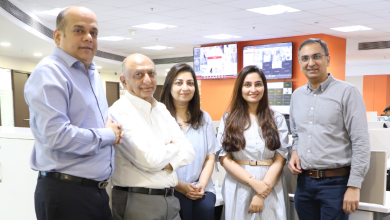Medtech firm SynPhNe raised $5 M Series A funding from Event Horizon

A member of the Nadathur Group, Event Horizon Technologies Pte Ltd, has contributed $5 million in Series A funding to SynPhNe, a medical technology spin-off from Nanyang Technological University, Singapore (NTU Singapore).
In an announcement on Monday, SynPhNe said that the Series A funding will support the company’s efforts to advance its goal of revolutionizing neurological rehabilitation and stroke care in several nations, including Singapore, the US, and India.
It claimed that the company’s successful Series A funding round is evidence of the technology’s potential to change the global healthcare scene, especially in addressing the enormous but largely unexplored market opportunity in the $30 billion stroke and brain injury sector in the US alone.
The financial support, according to the statement, will allow SynPhNe to grow its operations in the US market, forge new commercial alliances, and advance the development and commercial validation of its next-generation products and related applications.
Notably, its flagship product, SynPhNe, is a wearable solution that is at the forefront of accelerating the rehabilitation process for patients suffering from brain injury, neurodevelopmental disorders, and neurodegenerative diseases, as well as stroke survivors.
This cutting-edge technology, which combines gamification, neural feedback, and data science, can provide a real-time “inside view” into the rehabilitation process and the progress of patients. It is also easily customizable to meet the specific needs of each patient.
As per the statement, the efficacy of the technology is bolstered by numerous international patents, clinical trials, publications, and an increasing count of global commercial patients who have reaped the benefits of its use.
Simultaneously targeting the brain and muscles, SynPhNe addresses the cognitive and physical aspects of recovery that lead to increased independence.
It makes it possible for long-term patients to overcome recovery plateaus and accelerate their return to independent living. It also helps early-stage patients achieve greater degrees of independence sooner.
In the continuum of care, it can be used in both home and in-clinic settings.
With immediate feedback, patients can take an active role in their recovery process.
It gives therapists the ability to monitor development in areas that were previously thought to be “invisible” and instantly modify their treatment plans in a way that is more informed and individualized.
Acclaimed for its transformative power, SynPhNe enables people to improve and reclaim their mobility and cognitive function, which in turn affects the general well-being and performance of patients as well as their families.





